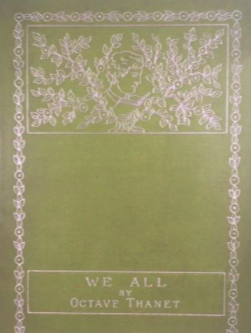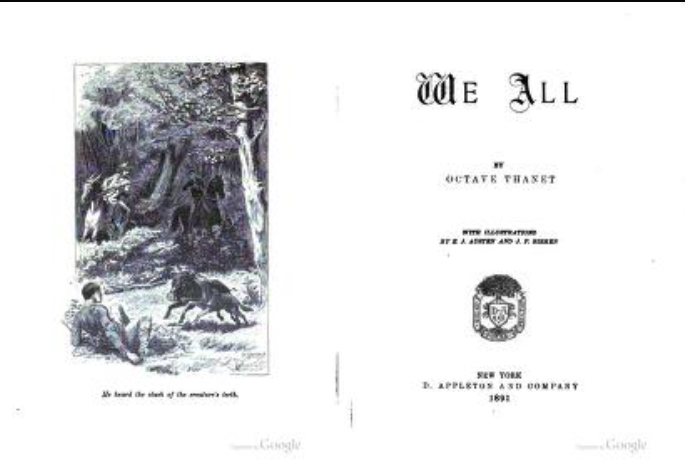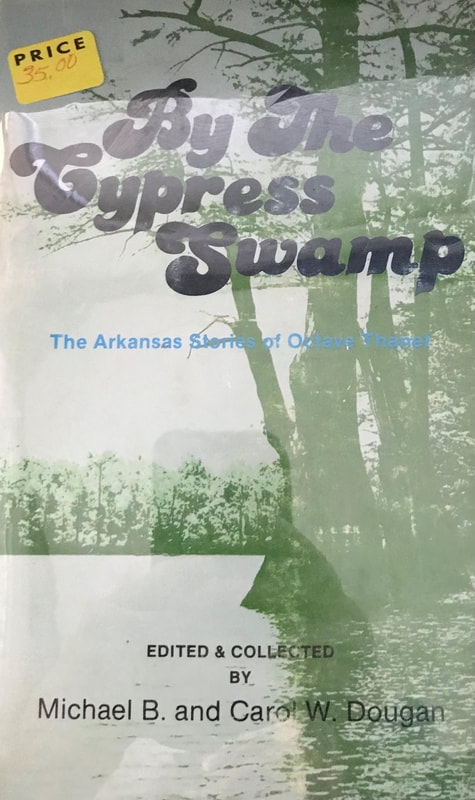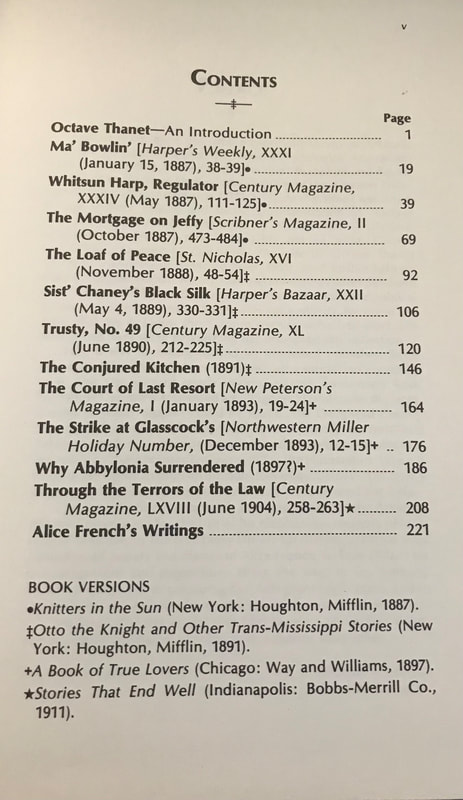Basic Summary: Cecil Raimund goes to Arkansas to the Seyton Plantation to spend time with his twin cousins Alan (Ally) and Sally. In the two weeks covered by the novel, Cecil helps the twins solve the mystery of the KKK scaring people. It turns out that Dawsey has been counterfeiting for the last five years, and while they suspect he's the one parading as the KKK, it turns out that Aunt Valley, a local conjure woman, and Larry, Dawsey's nephew, pretended to be KKK hoping it would lead to Dawsey being arrested for moonshining or lynched by the black people in the area. The book is very much a "juvenile novel" as McMichaels indicates, as the kids are the ones who solve the mysteries. Larry confesses to the trickery after Dawsey is dead because Dawsey accused Cobbs of conspiring with him to ride as the KKK as he's dying. There is some discussion in the novel of whether Cobbs is racist, which adds some credibility to Dawsey's "confession." Ultimately, the truth is revealed and things are tidy and neat for the most part--the kids are rewarded. Larry gets to live with Cobbs, Ally and Cecil become the best of friends (in a mirroring relationship of the one between Raimund and Seyton), and Sally gets $500 for her shrewd detective work. The Title: The title is echoed in two passages in the book. First, by Colonel Seyton after things have calmed down and Cobbs is no longer under suspicion. Basically, Seyton praises everyone involved in the resolution of the story, not just his own children (although Sally is the best detective of them all). "'This is just in time for a toast,' said he. 'Cobbs, here's your glass, man. 'WE ALL, East AND WEST, NORTH AND South! To our better acquaintance, because that means to our better and closer and dearer friendship.'" (Thanet, p. 271). Cecil, being from Chicago, thinks of himself as a northerner and spends the early parts of the novel thinking that his Arkansas cousins are simple and poor. He assumes he can better them at just about everything, including hunting. During a hog hunt he and Ally are not supposed to be on, Cecil faces a wild boar and thinks he can kill it with his revolver. Cobbs and Ally shoot the boar before it can get to Cecil, and he's humbled by it. Ally assures him that had they not intervened, Cecil surely would have felled the hog himself. The final paragraph of the book echoes the title and is reminiscent of the hog hunt, as well as the solving of the mystery and Cecil growing up. "Meanwhile, it is like Cis, who is fond of trinkets and dunnery, to wear a fob-seal, on which is engraved a wild boar's head and the letters 'W. A.'. The head is a reminiscence of another hog-fight, where Cis did kill the boar, and the letters stand for WE ALL." Overlap with Expiation:
0 Comments
Notes:
I was excited to begin Otto the Knight and Other Trans Mississippi Stories in part because of the regional focus. A few of these stories carry over characters from stories published in Knitters in the Sun. Michael B. and Carol W. Dougan's 1980 collection By the Cypress Swamp: The Arkansas Stories of Octave Thanet brings many of those stories together, although the title story "Otto the Knight" is not in that collection. Given the very light emphasis on the setting here, the omission of the story isn't completely surprising. McMichael also only mentions the story itself on page 125, indicating that it was chosen as the title for the collection solely based on the fact it was the first story. The omission is interesting, given that Lum Shinault definitely lives on the Black River in "Whitsun Harp, Regulator" and because there is the connection to getting lost in the swamp. Marty Ann searching for Boo gets lost, just as Ma' Bowlin got lost in the earlier story. Basic Summary:
|
About this project:I've been saying since 2004 that I was going to write a critical biography of Octave Thanet (Alice French). This blog is the start of that work and will include notes, links to research, and other OT related tidbits. Archives
February 2023
Categories
All
|




 RSS Feed
RSS Feed